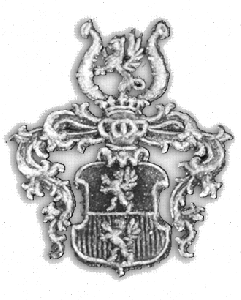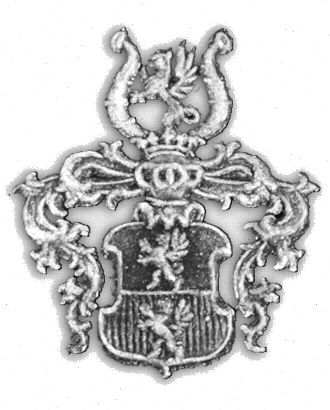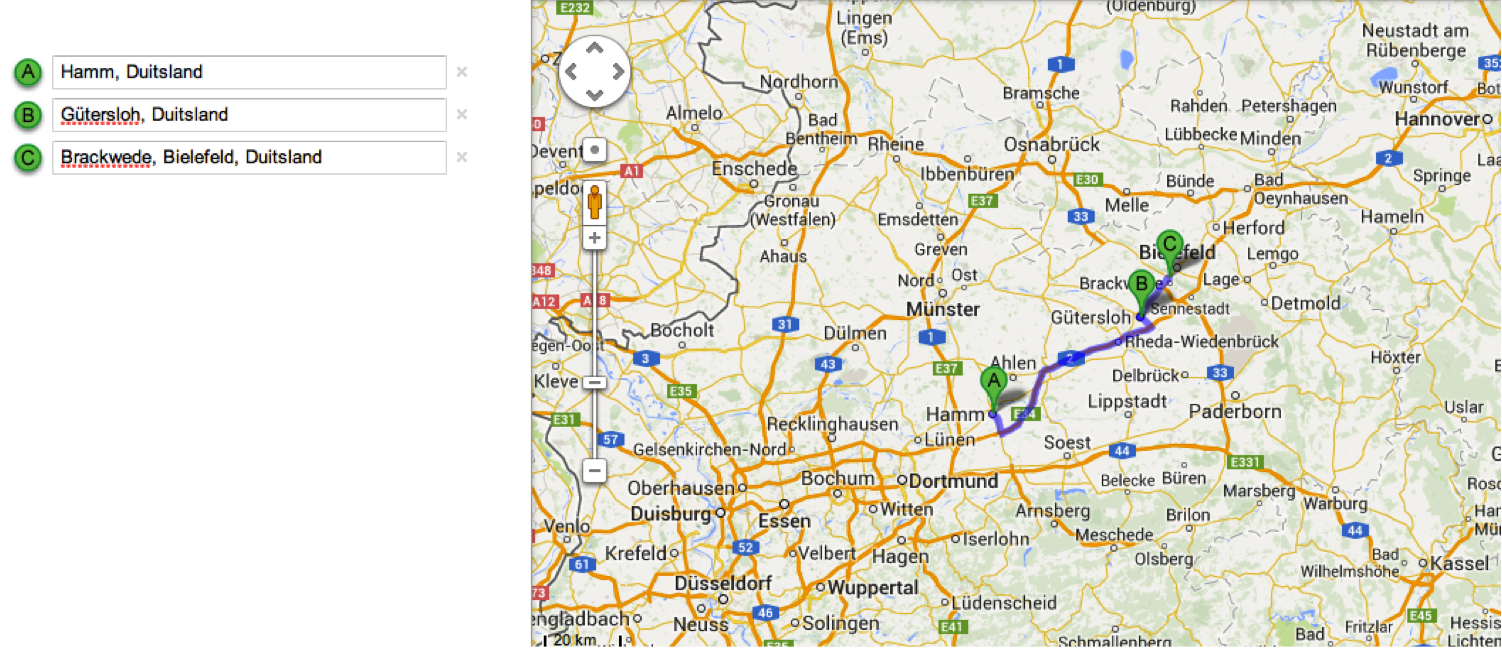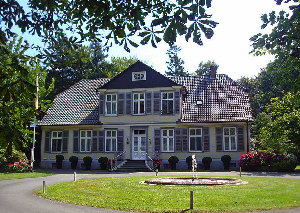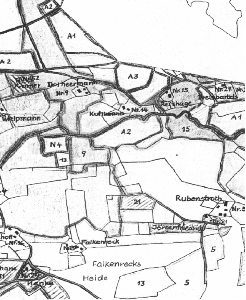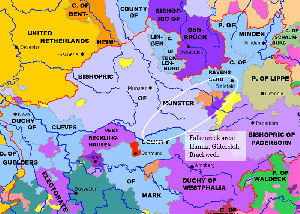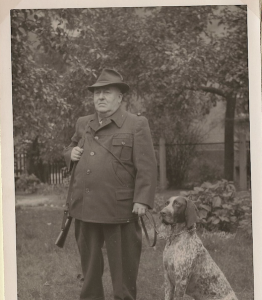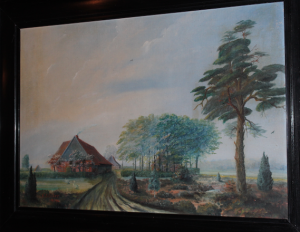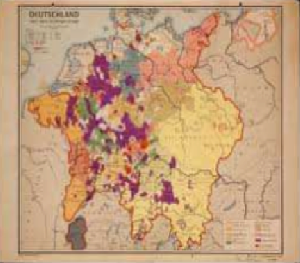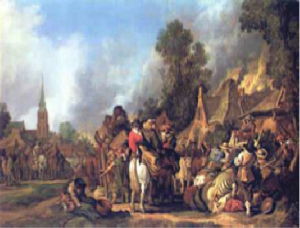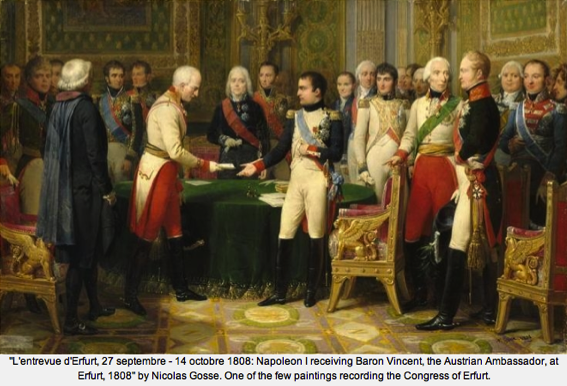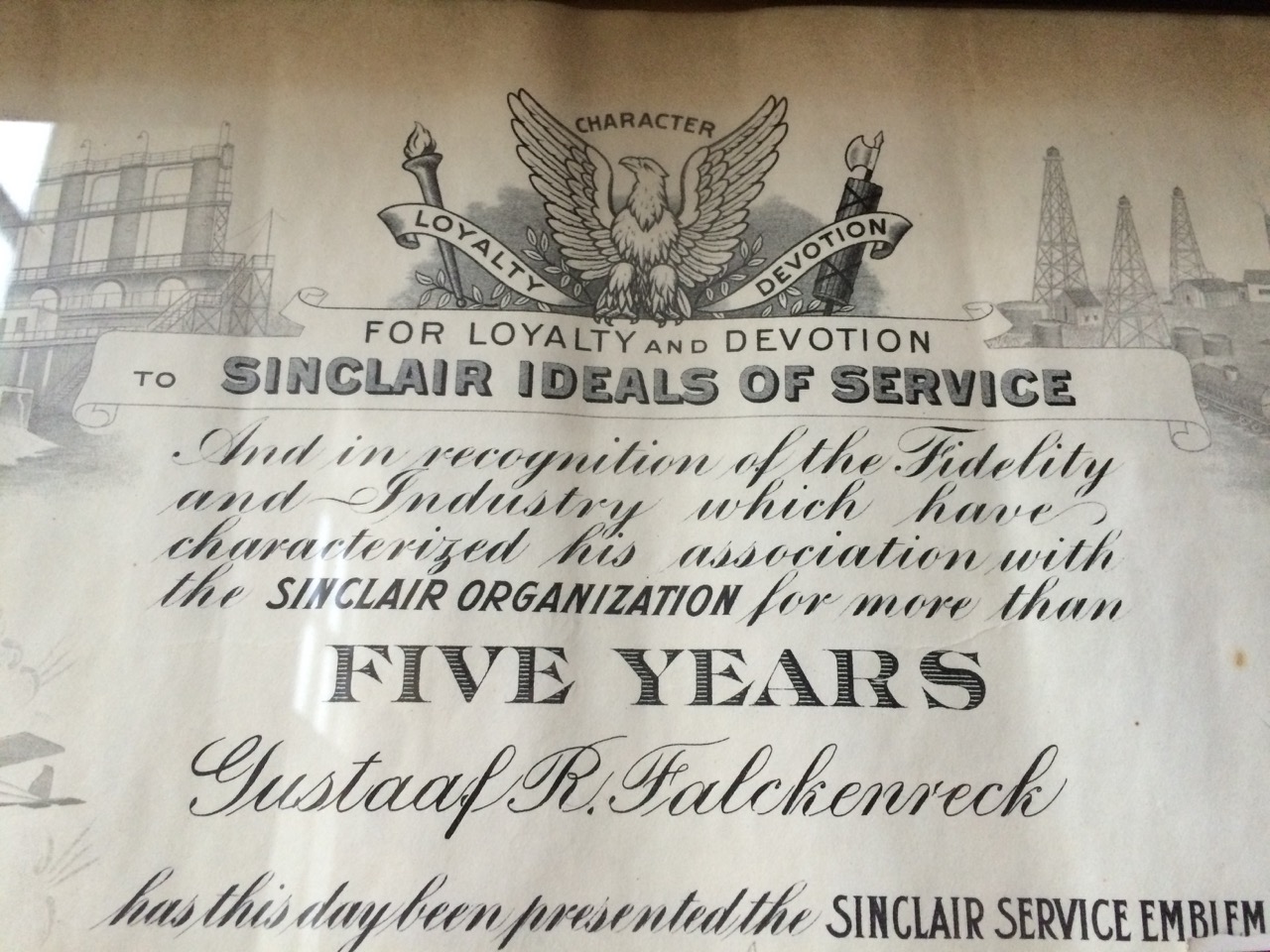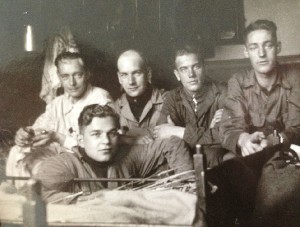Falkenreck
Meaning of the name
Falken: “strong, heroic”
Reck: “Judge, Knight, Hero, Calculate”. Reck originates from the Celtic word “Rick” meaning “Law”. The ancient nobility acted as judge, knight and administrator for a certain region on behalf of the Roman Catholic Empire (Charlemagne).
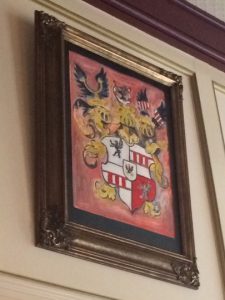 The merging of these two Nobility names had to be approved by the Monarch in the 16th century in the Holy Roman Empire.
The merging of these two Nobility names had to be approved by the Monarch in the 16th century in the Holy Roman Empire.
There is a small number of German noble families that do not carry “von”. These are the “Uradel” (e.g. Haus Reuß)
Falken and Reck are written as one word otherwise it would suggest that the 1000 miles of land between the Falken territory in the East of Germany and the Reck territory in the West is also theirs. It is also correct to write Falkenreck with a hyphen: Falken-Reck.
At the time the family von Falken moved to Westphalen and Earldom Mark, to be precise Hamm, ancestral seat of Familie Reck and also the location of “Haus Reck”, the Family Reck had a lot of influence. This can be seen in the text below:
Movement and possessions Falkenreck between 1556 and present
The 17th century – The Thirty Years War
This war changed the geopolitical situation in Europe forever. The Habsburgs dominated the 16th century and the first half of the 17th century. But political and religious conflicts and changing warfare made this organization untenable. The traditional castle and the traditional military role of the nobility was replaced by mercenary armies and the gun. In September and October 1647 during the Thirty Years War heavy fights took place in Rheine. Bombardment with glowing cannonballs then caused a disastrous town fire.
The nobility and the Teutonic Knights were mainly a conservative line in this period of reformation. They had to keep in mind that they could lose power and influence in the changing times.
Towards the middle of the Thirty Years War around 1630, Heinrich Falkenreck (1606-1676) and Gerd Falkenreck (1610-1700), one of his many sons is named Christoffel Falkenreck (..-1703)) develop a defense plan to defend possessions in strategic parts of Gutersloh. This plan is developed together with von Avenstroth also named Osthus, an “uradliche” family that already exists in the Gutersloh region since 1134.
Napoleonic wars
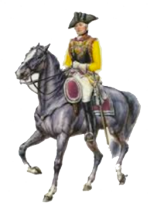 The battle of Waterloo (18 June 1815) is the last big battle where the line Falkenreck has played a prominent role in line with their hundreds of years of military tradition. Johann Heinrich (von) Falkenreck (1793-1838) was officer (Fähnrich) in the Nassau army at the battle of Waterloo.
The battle of Waterloo (18 June 1815) is the last big battle where the line Falkenreck has played a prominent role in line with their hundreds of years of military tradition. Johann Heinrich (von) Falkenreck (1793-1838) was officer (Fähnrich) in the Nassau army at the battle of Waterloo.
American Civil War
 The cousin of Maurits’ great grandfather his father emigrated to the USA and his son fought in the American Civil War (1861-1865). His name was Louis Falkenreck and his battle unit name was: 6th regiment, New Jersey Infantry, side: Union. As of today the Falkenreck bloodline still continues in the USA.
The cousin of Maurits’ great grandfather his father emigrated to the USA and his son fought in the American Civil War (1861-1865). His name was Louis Falkenreck and his battle unit name was: 6th regiment, New Jersey Infantry, side: Union. As of today the Falkenreck bloodline still continues in the USA.

World War II
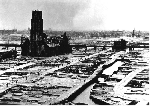 During World War II, Gustaaf Richard Falkenreck (great-great-great grandfather: Johann Heinrich (von) Falkenreck, who was a Dutch citizen (and who’s father was called Conrad Falkenreck (1876)), led intense heavy fights in Rotterdam during the invasion of the Germans. He was a Sergeant at the start of the fights however the high ranked Officers were nowhere to be found and he soon was acting as Chief Officer during the fights in Rotterdam.
During World War II, Gustaaf Richard Falkenreck (great-great-great grandfather: Johann Heinrich (von) Falkenreck, who was a Dutch citizen (and who’s father was called Conrad Falkenreck (1876)), led intense heavy fights in Rotterdam during the invasion of the Germans. He was a Sergeant at the start of the fights however the high ranked Officers were nowhere to be found and he soon was acting as Chief Officer during the fights in Rotterdam.
He lived by the “chivalric” main values of Honor, Strength and Courage, Faith, Generosity and Honesty. In his position as CFO and shareholder of Petrofina this among others was reflected when he refused the offer to become CEO and insisted that a young fellow with a family of three children would get the job because he and his family needed the money more than he did. In his daily life he was a very skilled and recognized fencer.
Gerald C. Falkenreck (1911-1999) was a First Lieutenant in the US Army during World War II
